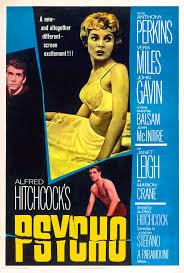The Legacy of Alfred Hitchcock’s Psycho

An Introduction to Hitchcock’s Classic
Alfred Hitchcock’s Psycho, released in 1960, is widely regarded as one of the most influential films in the history of cinema. This psychological thriller not only redefined the horror genre but also introduced innovative filmmaking techniques that continue to resonate in modern cinema. Its importance lies not just in its chilling narrative but also in its profound impact on cinematic storytelling and audience engagement.
Film Synopsis and Key Events
The film follows Marion Crane, played by Janet Leigh, who steals a large sum of money and ends up at the isolated Bates Motel, managed by the enigmatic Norman Bates, portrayed by Anthony Perkins. The narrative takes a dark turn as Marion disappears, leading to a gripping investigation. Psycho is notable for its shocking plot twists and the infamous ‘shower scene,’ which showcased Hitchcock’s mastery of suspense and psychological tension.
Innovations in Film Techniques
Hitchcock’s use of music, specifically the score by Bernard Herrmann, is another critical aspect that amplifies the suspense throughout the film. The combination of stark black-and-white cinematography and clever editing created a sense of unease that had audiences on the edge of their seats. Hitchcock manipulated audience expectations, famously advising viewers not to reveal spoilers, which became a marketing strategy leading to full theatres.
Cultural and Critical Reception
Upon its release, Psycho was both lauded and controversial, pushing the boundaries of violence and sexuality in film. It earned four Academy Award nominations, and Janet Leigh won a Golden Globe for her performance. The film’s reception has evolved over the decades, with some critics now considering it one of the greatest films ever made. Its themes of duality and identity resonate in contemporary discussions about psychology and film theory.
Conclusion: The Film’s Enduring Legacy
Alfred Hitchcock’s Psycho remains a seminal work in the horror and thriller genres, reminding us of the power of storytelling and the importance of suspense in filmmaking. Its innovations set the standard for countless films that followed, and it continues to be studied in film schools around the world. As we revisit this classic, Psycho serves not just as entertainment but as a pivotal moment in cinematic history that forever altered audience perceptions of horror.
